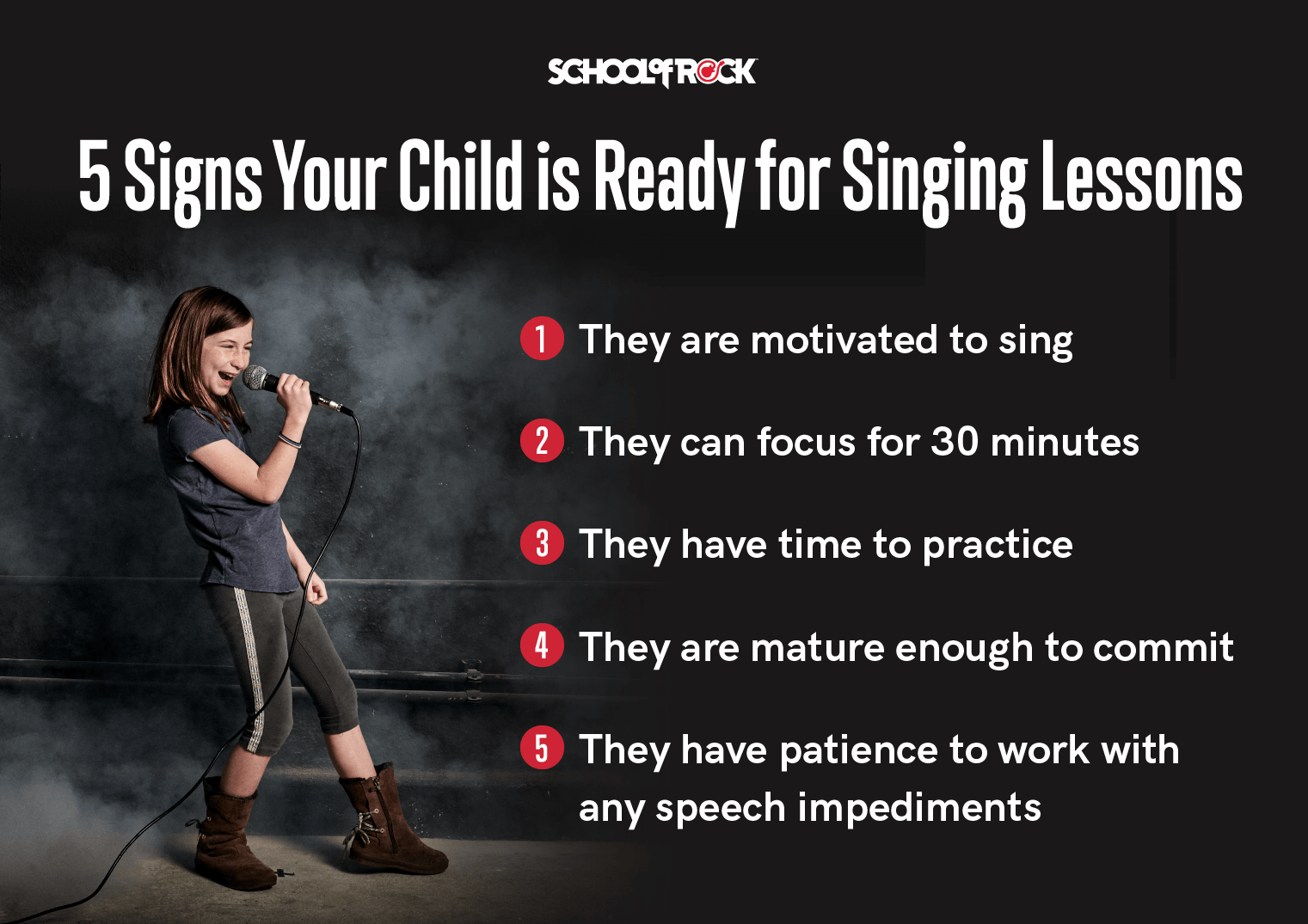Learning to sing is a universally rewarding experience. Many children enjoy singing, even from a very young age, and people of any age can learn to sing, even with little to no prior musical experience. The best age to learn to sing depends less on physical maturity and more on factors like self-motivation, available practice time and the ability to focus.
WHAT IS THE BEST AGE TO START SINGING LESSONS?
Because singing does not depend on the fine motor skills and coordination involved with other instruments, the best age to start singing lessons varies from student to student. However, learning to sing requires regular practice, focus and attention to detail.
Students who start singing lessons should be socially mature enough to focus in the lesson room and follow the coaching of their instructor. Children are generally ready for this type of instruction between ages 7 and 9. The human voice continues to mature throughout life, however, so students of any age can benefit from singing lessons.
Typically children are ready to start singing between the ages of 7 and 9.
Is your child ready to start singing lessons?
There are several factors that can help gauge whether a child is ready to start singing lessons. For the most part, if children are mature enough to take direction and maintain a practice schedule, they are ready to start singing lessons.

5 signs your child is ready to start singing lessons
Outside of the basic physical requirements, here are some signs that your child is ready to take up singing.
-
Your child is motivated to sing. Students who are motivated progress at a much faster rate and have more success learning an instrument. If the child enjoys music or sings along to the radio or TV programs, this is a good indication that they are ready to start learning how to sing.
-
Your child can focus for 30 minutes. Consistent practice is the key to learning to sing. If your child can focus on a task for 30 minutes, they should be able to maintain a practice schedule and be able to handle taking singing lessons.
-
Your child can make time to practice singing. In addition to lessons, students need practice time throughout the week in order to learn to sing. Parents may need to help manage practice time, especially at first, when the student is new to singing.
-
Your child is mature enough to commit. Children can vary pretty widely by age in terms of their social maturity. If the child is able to follow directions well and takes to coaching, they will have more success following their teacher’s instructions. More mature students can also self-manage their practice time.
-
Your child has the patience to work with any speech impediments. Students with speech disorders may find it a little frustrating when first starting singing lessons. However, learning to sing in lessons with a supportive instructor can actually help these issues over time and give students newfound confidence.
Tips when starting singing lessons
- Take proper care of your voice. Just like any musician would care for their instrument, singers need to be very mindful of keeping their voice healthy. Students should avoid screaming and stay hydrated by drinking plenty of water.
- Warm up before singing. Vocal warm-ups are crucial before any practice or performance. Students can damage their voices by singing loudly without warming up. One of the first things students learn in singing lessons is how to warm up properly.
- Train you ear to differentiate pitch. Ear training, or interval training, is a method for improving pitch and becoming a better singer. Instructors teach students how to train their ear in singing lessons, and students should make sure to practice this important skill.
- Practice singing every day. Students who practice daily improve at a much faster rate than those who only practice intermittently. By setting aside 30 minutes per day for practice, students will, over time, progress beyond their wildest dreams.
- Learn the song and lyrics first, then develop technique. Learning and memorizing the melody and lyrics of a song will allow students to focus on their singing technique and not be distracted by trying to remember how the song goes.
- Sing with other students. Playing music with other people is a fun and effective way to apply concepts learned in lessons. Students who sing in a group or band setting, as well as during solo practice, tend to progress at a much faster rate than students who only practice alone. Singing with friends or peers — whether other singers or a full band — is a rewarding and inspirational experience that can provide motivation to improve.
Is it ever too late to start singing lessons?
It’s never too late to start singing! In fact, the human voice continues to mature throughout life, so students of any age can benefit from singing lessons. Plus, singing can be an effective way to keep your mind and body sharp.
At School of Rock, our trained vocal instructors teach students all aspects of singing. Ready to start? Sign up for a singing lesson now.










